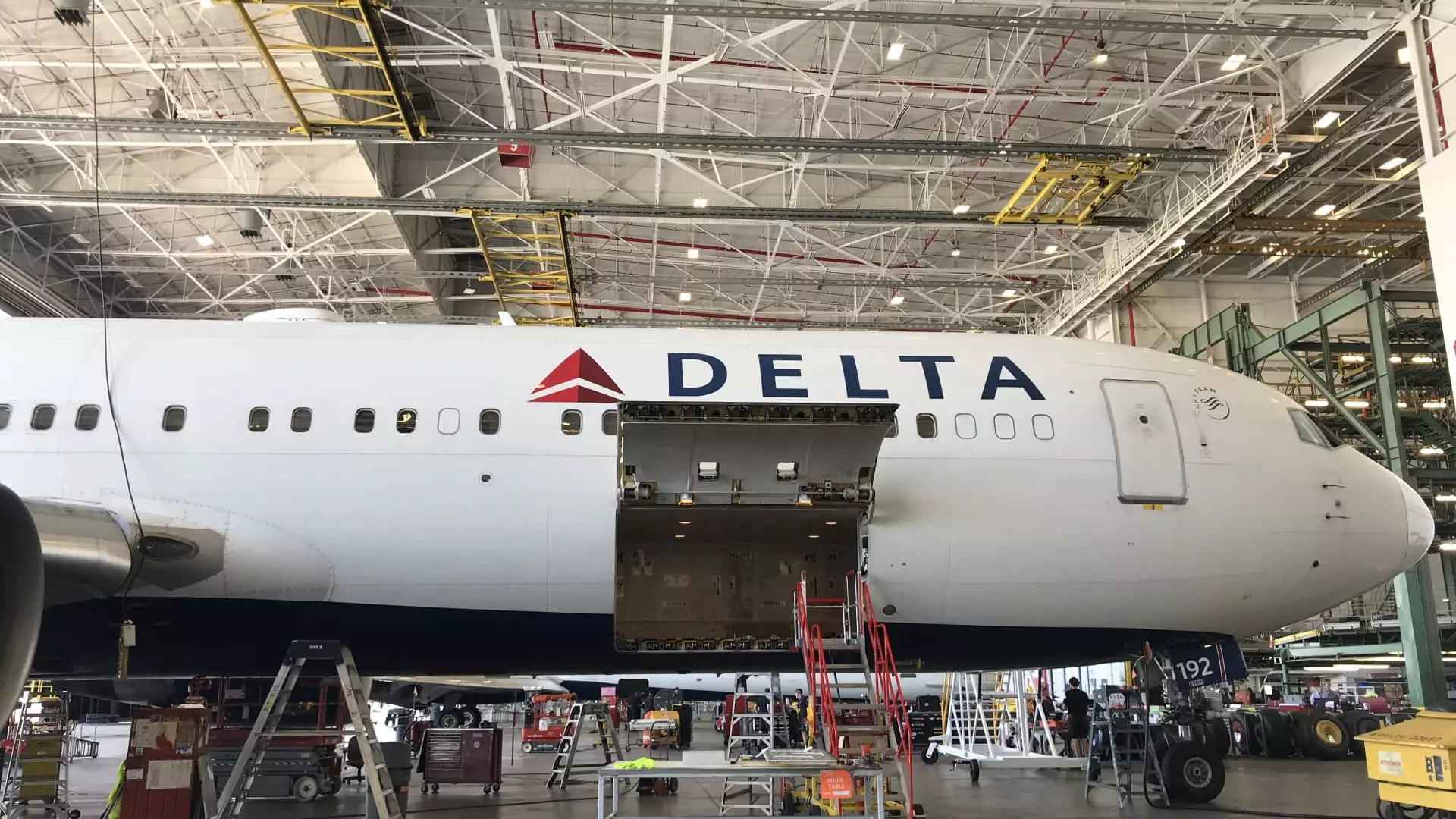Delta Air Lines is setting its sights on a strong finish to the year with an optimistic earnings forecast for the fourth quarter. The airline anticipates adjusted earnings between $1.60 and $1.85 per share, a notable increase from the previous year’s adjusted earnings of $1.28 per share. These figures come close to Wall Street’s expectations of $1.71, which suggest that, despite ongoing market challenges, Delta’s fundamentals remain solid. This bullish outlook is primarily driven by resilient travel demand coupled with robust holiday bookings, which typically experience a spike as year-end approaches.
However, it is essential to consider the broader context. Delta also indicated potential headwinds, citing a minor revenue setback due to anticipated lower demand surrounding the upcoming U.S. presidential election, expected to result in a one-point revenue impact. This could reflect a consumer sentiment shift as individuals tend to delay expenditures during electoral cycles.
Examining Delta’s performance in the third quarter provides a deeper insight into how the airline has managed its operations amidst various challenges. The airline recorded adjusted earnings of $1.50 per share, slightly below the $1.52 that analysts had predicted. Revenue figures also fell short, totaling $14.59 billion against an expectation of $14.67 billion. This discrepancy was largely attributed to an unforeseen operational crisis caused by a CrowdStrike outage that disrupted thousands of flights.
Despite these setbacks, Delta’s net income for the quarter showed a commendable 15% increase year-over-year, amounting to $1.27 billion. This growth demonstrates the airline’s potential to rebound quickly despite adverse events. Moreover, passenger revenue remained stable, indicating steady demand for air travel, while Delta’s premium offerings outperformed standard cabin sales. This trend underscores a strategic pivot towards high-margin services, positioning the airline favorably in a competitive landscape.
Delta’s recent challenges highlight the volatility inherent in the airline industry. The CrowdStrike incident alone resulted in a $380 million hit to revenue, demonstrating the profound implications of dependencies on technology partners. CEO Ed Bastian’s comments reflect this sentiment, as he expressed hopes for compensation from CrowdStrike and Microsoft, underscoring the importance of accountability in operational disruptions. The legal complexities surrounding this incident could bleed into 2024 if not resolved promptly, impacting Delta’s financial forecasts.
Nevertheless, the strategic insights from Delta’s leadership affirm the airline’s adaptability. With the domestic market exhibiting signs of oversupply, there is industry-wide caution regarding fare pressures. However, Delta’s president, Glen Hauenstein, remains optimistic about market rationalization efforts, hinting at a potential recovery phase enabling airlines to stabilize fare structures.
Your Year-End Travel Plans: What to Expect
For consumers looking to book year-end travel, Delta’s bullish booking trends are encouraging. While overall economic uncertainty may lead some to reconsider travel plans, the strong demand observed in holiday bookings signals a resilient consumer base. Delta’s projected capacity increase of 3% to 4% for the final quarter is reflective of this demand, suggesting that travelers may have more flight options available as they prepare to reconnect with loved ones or escape for vacations.
As we move into 2025, Delta aims to leverage its position within the industry to further capitalize on consumer needs and preferences. The carrier’s proactive strategies indicate readiness not just to navigate immediate market challenges but also to seize long-term growth opportunities. By focusing on enhancing its premium services and maintaining strong operational oversight, Delta is poised to sustain its momentum even as it faces external market fluctuations.
Delta Air Lines illustrates the delicate balance between optimism and caution in the current economic environment. With strong holiday bookings and promising earnings forecasts, the airline is well-positioned for a robust fourth quarter. However, factors such as the impact of external disruptions and market fluctuations remind us that success in the airline industry is never guaranteed.
As Delta navigates these complexities, its proactive adjustments and focus on premium services may enable it to emerge even stronger. The airline industry remains in a state of flux, but Delta’s strategic foresight could well pave the way for sustained growth as it enters the new year.


Leave a Reply